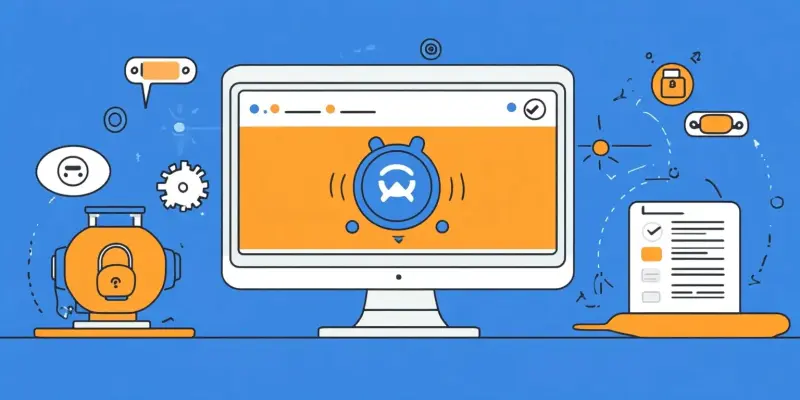A significant security vulnerability has been discovered within OpenAI’s ChatGPT application programming interface (API), which could be exploited to launch large-scale distributed denial-of-service (DDoS) attacks on websites. This alarming flaw was identified by German security researcher Benjamin Flesch, who meticulously documented his findings on GitHub.
Exploiting API Vulnerabilities
The core of the vulnerability lies in the handling of HTTP POST requests directed to the /backend-api/attributions endpoint of the API. This specific endpoint allows users to send a list of hyperlinks through the “urls” parameter. The problem arises because there is no restriction on the number of hyperlinks that can be included in a single request. Consequently, nefarious actors can inundate the API with an overwhelming number of URLs. Moreover, OpenAI’s API does not verify if these hyperlinks lead to the same resource or if they are duplicates.
Potential Consequences
By exploiting this flaw, an attacker can include thousands of hyperlinks in one request, causing OpenAI servers to generate a massive volume of HTTP requests to the victim’s website. The subsequent surge of simultaneous connections can overload and potentially cripple the targeted website’s infrastructure. This makes the API particularly vulnerable to malicious misuse, where attackers can employ it as an amplifier for their DDoS attacks.
Lack of Defensive Measures
The absence of rate-limiting and duplicate request filtering within OpenAI’s API only exacerbates the problem. Flesch emphasized that without these critical safeguards, OpenAI inadvertently enables attackers to amplify their malicious activities. To mitigate this risk, Flesch recommends that OpenAI implement stringent limits on the number of URLs permitted per request, ensure the filtering of duplicate requests, and incorporate rate-limiting measures to reduce the potential for abuse.
Industry Insights and Concerns
Echoing Flesch’s concerns, Elad Schulman, founder and CEO of Lasso Security Inc., underscored the risks that ChatGPT crawlers pose to businesses. He pointed out that such vulnerabilities could lead to various forms of cyber-attacks, DDoS attacks among them, with severe repercussions such as reputation damage, exploitation of data, and resource depletion. Schulman highlighted the potential for hackers to exploit generative AI chatbots to exhaust a victim’s financial resources, particularly in the absence of adequate protective measures.
Summary and Recommendations
A major security vulnerability has been found in OpenAI’s ChatGPT application programming interface (API), posing a threat that could be exploited to carry out extensive distributed denial-of-service (DDoS) attacks against websites. This critical flaw was discovered by German security researcher Benjamin Flesch, who has thoroughly documented his findings and made them available on GitHub. The discovery highlights the potential for malicious actors to misuse the API, leading to significant disruptions online. Flesch’s comprehensive analysis provides detailed insights into the nature of the vulnerability and the potential risks it poses. The documentation on GitHub includes technical specifics that could be crucial for developers and security professionals looking to understand and mitigate the threat. This revelation underscores the ongoing need for rigorous security measures in software development, particularly in widely used applications like ChatGPT. OpenAI and other tech developers must take immediate action to address such vulnerabilities to ensure the safety and reliability of their platforms.

